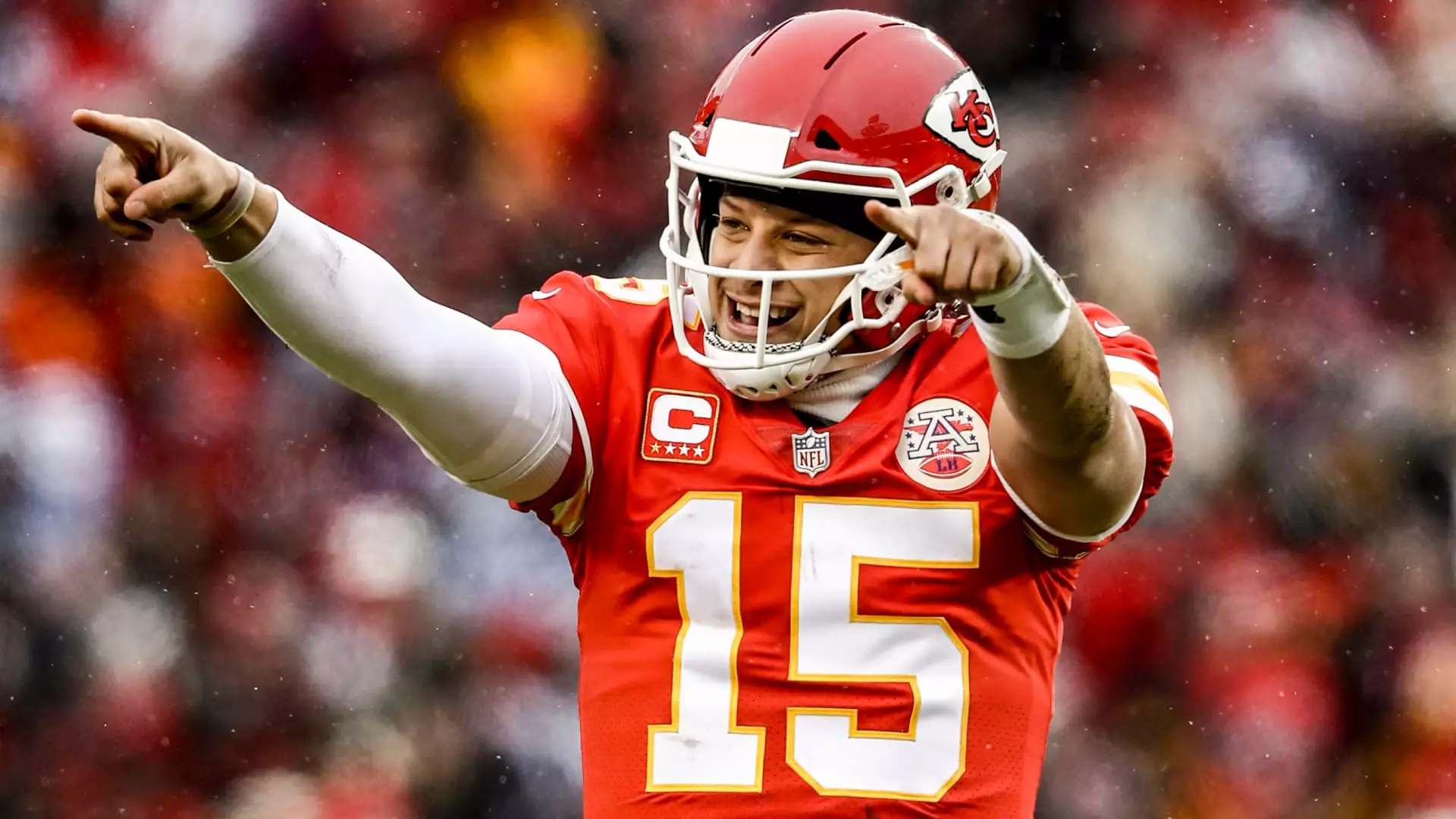Patrick Mahomes, a name synonymous with excellence on the gridiron, continues to dazzle fans not only through his athletic prowess but now through bold ventures into the business world. His recent foray into the coffee industry as a significant investor and pitchman highlights a larger trend—sports icons leveraging their influence to diversify their portfolios. While this might seem astute on the surface, it signals a concerning shift where sports figures prioritize wealth accumulation over an unyielding focus on athletic mastery and league integrity.
Mahomes’ investment in Throne Sport Coffee is more than a passing interest; it reveals the modern athlete’s desire to embed themselves in consumer culture. This is emblematic of a broader societal trend where celebrity status becomes a branding tool for ventures that often stretch beyond traditional sports domains. In Mahomes’ case, his influence could distort the consumer landscape, shaping preferences not necessarily based on value but on celebrity endorsement. His commitment to a health-conscious product does carry some merit, but the underlying motive seems rooted in expanding personal wealth and legacy—potentially at the expense of the sport’s authentic spirit.
Sports, Profits, and Political Power Plays
Mahomes’ investments extend beyond coffee, illustrating how contemporary players are transforming into entrepreneurs and stake-holders across leagues and teams. His involvement with the Kansas City Royals, Sporting Kansas City, and Alpine F1 signals an emerging pattern among athletes—using their star power to secure financial footholds in sports properties that could influence the future of league decisions. The question is whether these business pursuits serve the best interests of the sport or merely serve to entrench a profit-driven mentality that threatens the league’s integrity and competitive balance.
His comments about potential ownership of the Chiefs suggest ambitions that hover dangerously close to conflict of interest when players transition into ownership roles. The blurred lines between athlete, investor, and owner risk creating an environment where loyalty to the sport is overshadowed by financial self-interest. Such shifts threaten to undermine the foundational values of sports as a unifying community enterprise. Instead of pure competition and community bonding, the NFL risks becoming a playground for wealthy elites, whose influence may skew league policies and priorities.
The NFL’s Future: Dangerous Changes on the Horizon
The league’s consideration of expanding the regular season from 17 to 18 games exposes a reckless disregard for player health and safety. Mahomes’ cautious stance reveals an understanding of the physical toll that more games impose. Yet, the league’s push for an extended season appears driven purely by financial motives, aiming to generate more revenue at the expense of players’ long-term well-being. The addition of games, paired with proposals for international expansion—such as the recent Brazil game—further complicates this landscape, risking player burnout and diminishing the quality of competition.
Mahomes’ articulated concern about more bye weeks highlights a rare moment of clarity amidst the league’s greed-driven ambitions. It underscores a dangerous trend where economic interests override fundamental aspects of athlete safety. The NFL’s willingness to risk its most valuable assets—its stars—by pushing for more games and expansive markets is a reckless gamble with long-lasting consequences. It reveals a troubling prioritization of short-term profits over the health of players and the integrity of the game itself.
A Cultural Shift that Benefits No One but the Wealthy
The rise of athlete entrepreneurs and league expansion plans are symptomatic of a broader societal shift where sports are increasingly viewed as commodities rather than community institutions. Mahomes’ involvement in business and league politics illustrates this point vividly. As players become invested in ventures unrelated to their athletic careers, the sport risks losing its authentic appeal—becoming a spectacle driven by corporate interests and investor profits.
This transformation can have a corrosive effect on the sport’s core values. The focus shifts from athletic excellence and fan loyalty to wealth accumulation and league expansion. Mahomes’ ambitions, while individually impressive, symbolize a dangerous trajectory where athletes are no longer just competitors but pawns in a larger commercial chess game. This trend could ultimately alienate grassroots fans, who value the sport for its traditions and community spirit—not for lucrative investments and global markets.
By embracing these pursuits, Mahomes embodies the new generation of sports stars—more voracious for wealth and influence than for legacy and athletic achievement. This reckless pursuit of diversification and expansion, cloaked in the guise of progress, ultimately risks compromising the sport’s soul and diminishing its cultural significance. As the league leans further into this perilous course, it becomes clear that the true cost may be the sport’s own future integrity and its capacity to serve as a unifying force for communities.

